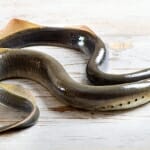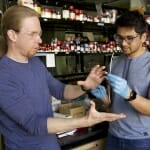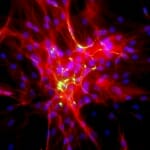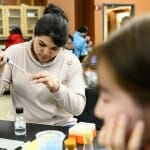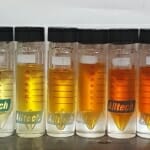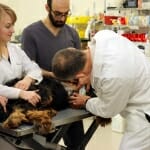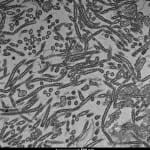Tag Research
A new way to wind the development clock of cardiac muscle cells
A study published in the journal Stem Cells describes a new and unexpected way to accelerate the maturation of induced pluripotent stem cells into cardiac muscle cells.
Kohl donates $10M to support La Follette School’s outreach, teaching and research
Kohl’s donation, the Kohl Initiative, focuses on three priorities that will expand the School’s public outreach mission, advance the training of future public leaders and support influential research by faculty and students. It is the largest donation in La Follette School history.
Double dipping: Dual-action ‘slippery’ catheter fights bacteria
A super-slippery coating being developed at a University of Wisconsin–Madison lab could benefit medical catheters, factory equipment, and even someday, oil tankers. The coating contains…
Stem cell scientists clear another hurdle in creating transplant arteries
Scientists at the Morgridge Institute for Research are one step closer to realizing their dream of creating artery banks with readily-available material to replace diseased arteries during surgery.
New professor brings precision data to the dairy barn
The same technology that alerts a self-driving car that there’s a pedestrian in the crosswalk could also warn a dairy farmer that a calf is getting sick — even if that calf is mingled among dozens of healthy ones.
Three students named Goldwater Scholars for science excellence
All three recipients have conducted research as undergraduates and plan to pursue doctorates in their respective fields.
‘Bad guy’ fibrocytes could help rebuild damaged tissue
Could a blood cell type responsible for scarring and diseases such as pulmonary fibrosis be repurposed to help engineer healthy tissue? A new study by…
Microbiology capstone course plumbs life’s mysteries in the deep ocean
In a capstone research project, dozens of senior microbiology majors are coaxing their microscopic subjects back to life and dissecting their genetic information in hopes of illuminating how their harsh ecosystems function.
Commencement spotlight: UW grad uses brother’s injury as inspiration for research
Stefanie Henry will graduate from UW as a double major in neurobiology and French, along with an extensive background in nervous system trauma research that is inspired by her brother’s spinal cord injury.
Fettiplace named a Passano Fellow; 2nd major award for hearing researcher
Fettiplace, a professor of neuroscience at the UW School of Medicine and Public Health, won the award for showing how cochlear hair cells sense the tiny mechanical vibrations that sound produces in the inner ear.
Stressed parents rely on junk food for kids
“The higher their psychological distress, the less healthy food is available in the home and the more unhealthy the feeding practices are for their children,” says Myoungock Jang,
H3N2 viruses mutate during vaccine production but new tech could fix it
UW-Madison researchers describe a new cell line that enables better growth of H3N2 for vaccine use. The virus is also far less likely to mutate during production using this cell line, improving the chances of a match between vaccine and circulating influenza viruses.

